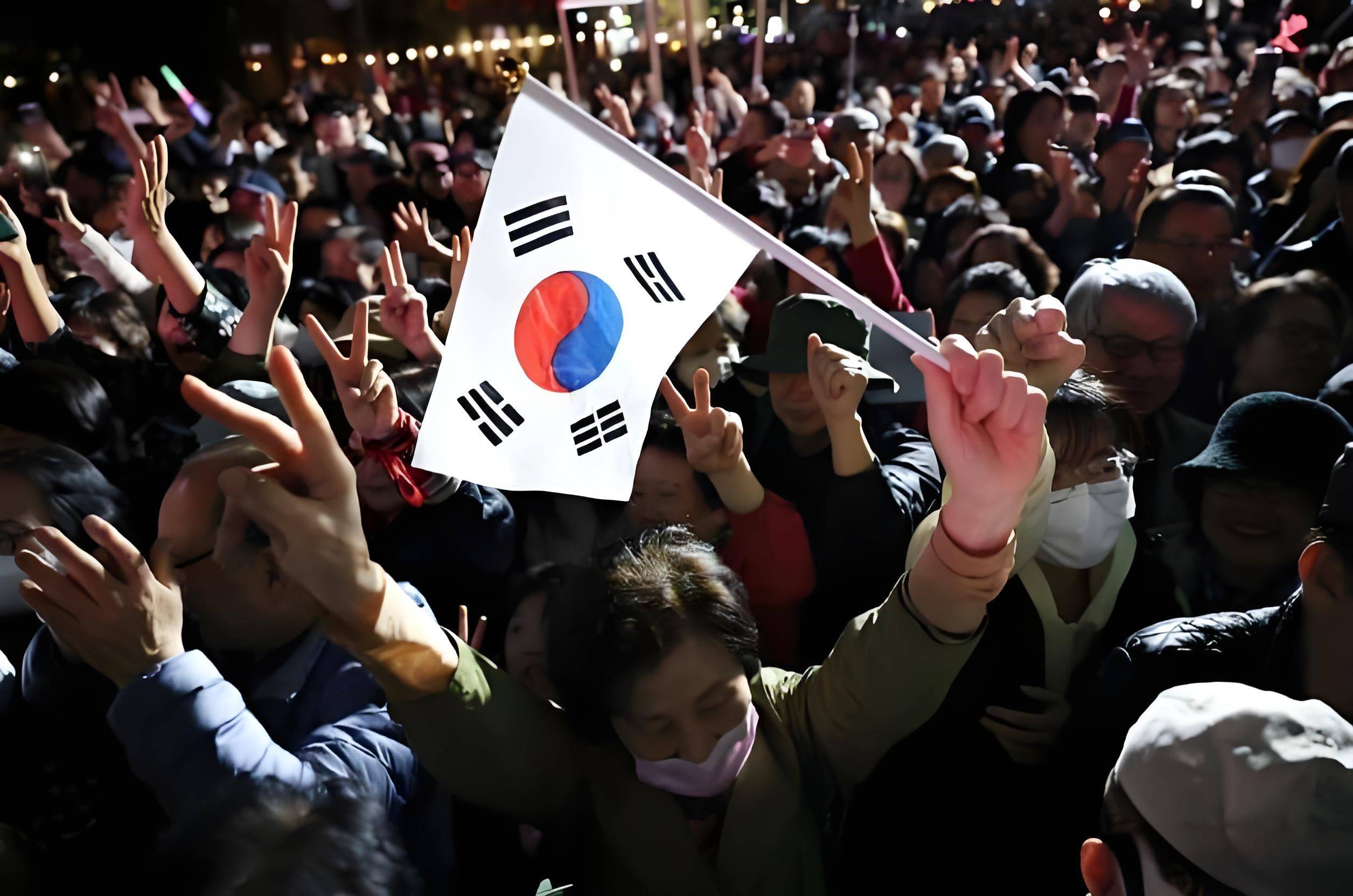
On the evening of the 3rd, South Korean president Yoon Suk-yuet suddenly announced the implementation of“Emergency Martial Law” in a speech broadcast live on television, but it lasted only 6 hours before it was lifted, south Korea overnight many people in convenience stores to snap up necessities of life phenomenon. At the same time, South Korea’s food, beauty, fashion and other industries into a tense situation. Yonhap said the emergency martial law crisis triggered a financial market“Huge shock.”. On the 4th and 5th, South Korea’s composite stock index closed down for the second day in a row, and the won fell to a two-year low against the dollar at one point.
Sales of instant rice, mineral water, canned food and instant noodles surged at 10:40 pm Wednesday after a state of emergency was declared, the Asia daily reported Wednesday. Sales of mainly processed foods were up about 75 per cent from the previous day or week.
Global Times reporters in Seoul noted that local life order has returned to normal on the morning of the 4th, Subway, bus and other public transport operations are normal, schools, hospitals and so on are also normal. 5, the reporter to the supermarket to buy supplies found that the supermarket supplies are sufficient, the purchase of daily necessities more than ever, but there is no looting phenomenon.
The political turmoil has also triggered a sell-off of the won by investors concerned about the country’s economic prospects. The South Korean stock market opened Lower Friday, with the won remaining at about 1,415 to the dollar, slightly higher than before the storm, AFP said. To stabilize the market, South Korea’s finance ministry announced Friday that it will launch a 40 trillion won market stabilization fund. However, South Korea’s“East Asia Daily” 5, said foreign investors looking at the Korean stock market is still very cold eyes.
Market analysts said that while martial law had been lifted, investors were wary of the market outlook for fear of continued political instability in South Korea. According to the The Korea Herald, the martial law regime has thrown multinational companies operating in the country into an overnight tailspin. Concerns have also emerged across industries in South Korea, particularly in transport and logistics, where companies are bracing for potential disruptions that could ripple through global supply chains and basic services.
South Korea’s martial law regime“Comes and goes in a hurry”, with the industry mired in political fallout, the Asia daily said. The industry said that if the number of foreign tourists drops due to the emergency martial law, the Korean beauty brands and the hotel industry will be affected. The hotel industry said that although there is no large-scale cancellation of reservations, but there has been a flood of inquiries from foreign tourists; the tax-free industry has been under pressure for a long time, and sales will suffer if there is a further drop in foreign visitors; and“K-culture” is a pillar industry in South Korea, any damage to brand value and global influence will make recovery more challenging.
Da Zhigang, a researcher at the Northeast Asia Institute of the Heilongjiang Academy of Social Sciences, said in an interview with a reporter from the global times on the 5th that there are political uncertainties and risks, will affect the confidence of foreign capital in cooperation and investment with Korean enterprises. The turmoil could have an impact on the South Korean economy, but not necessarily particularly serious, depending on this week’s parliamentary vote on Yoon’s impeachment.